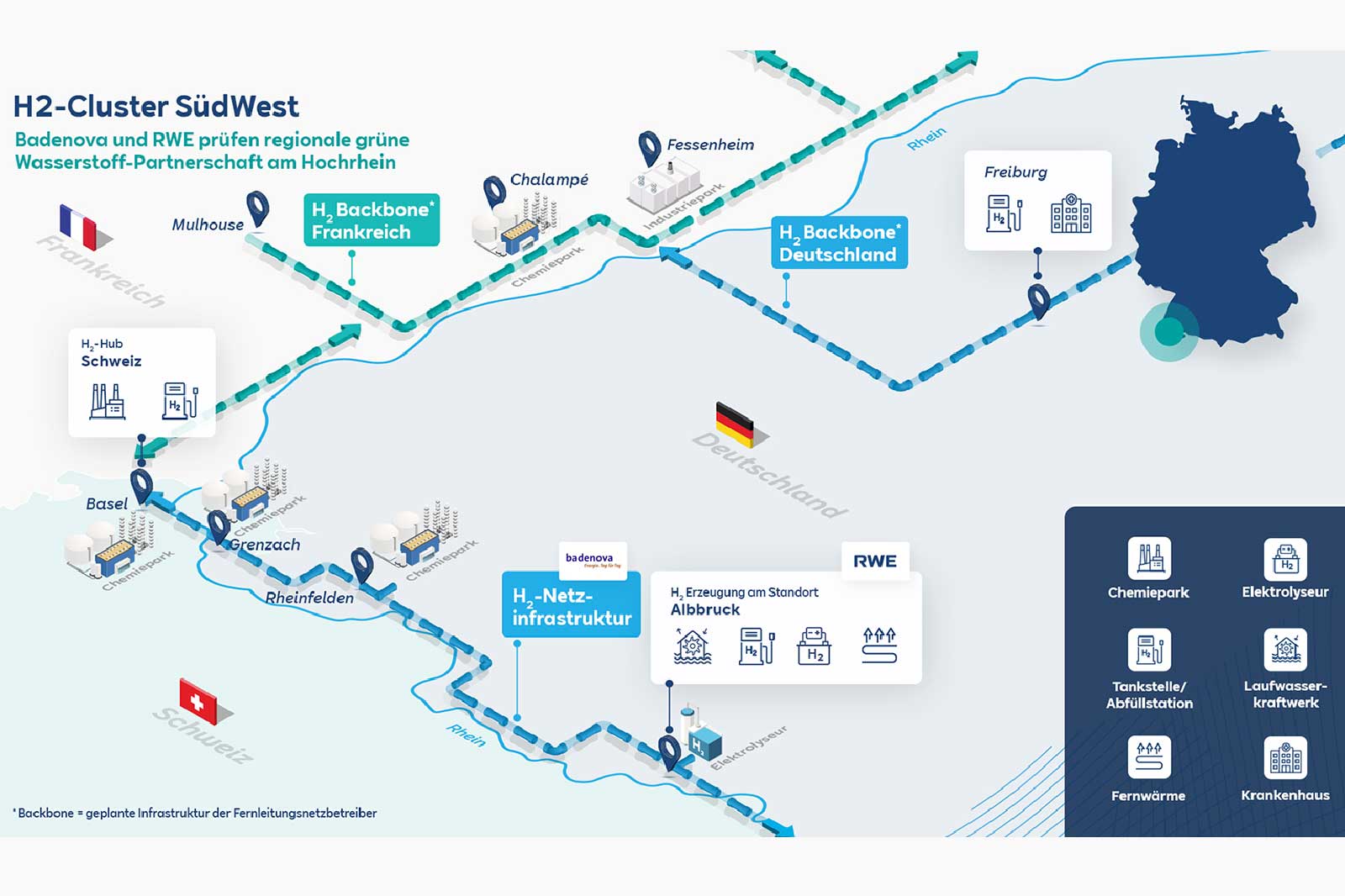Germany – RWE, a German-based multinational energy company, and badenova, a supplier from Freiburg, plan to jointly construct an electrolysis plant in Albbruck, Germany.
The proposed plant will have a capacity of 50 megawatts and will produce up to 8,000 tons of green hydrogen annually using green electricity from the region. Badenova, on the other hand, will build an eight-kilometer hydrogen pipeline on the High Rhine, connecting Waldshut to Albbruck to decarbonize industry. The hydrogen pipeline is part of the 3H2 initiative to promote gas network transformation and secure the industrial location in the border triangle.
The proposed electrolysis plant is expected to provide green hydrogen in significant quantities from the end of 2026, supporting industrial and transport customers on the Upper Rhine in converting their processes to green hydrogen and achieving their climate goals. The green electricity for the electrolysis plant will come from renewable sources in the region, contributing to the development of a hydrogen infrastructure that connects the region to emerging hydrogen networks in Germany and Switzerland.
Hydrogen pipeline
The badenova infrastructure subsidiary, badenovaNETZE, is also planning to build a new hydrogen pipeline from Waldshut to Albbruck to reach industrial and transport customers on both sides of the High Rhine. The feasibility study for the hydrogen pipeline is about to be completed, with construction expected to be implemented by 2025.
The project’s potential impact is significant, as it aims to promote the use of green hydrogen as an alternative to fossil fuels, contributing to the reduction of greenhouse gas emissions and addressing climate change. The project is also expected to create new jobs in the region and stimulate economic growth.
Challenges
However, challenges may arise in the implementation of the project, including the high initial cost of infrastructure construction and the need for sufficient renewable energy sources to power the electrolysis plant. The project also faces competition from other regions and countries developing their own hydrogen infrastructure.





